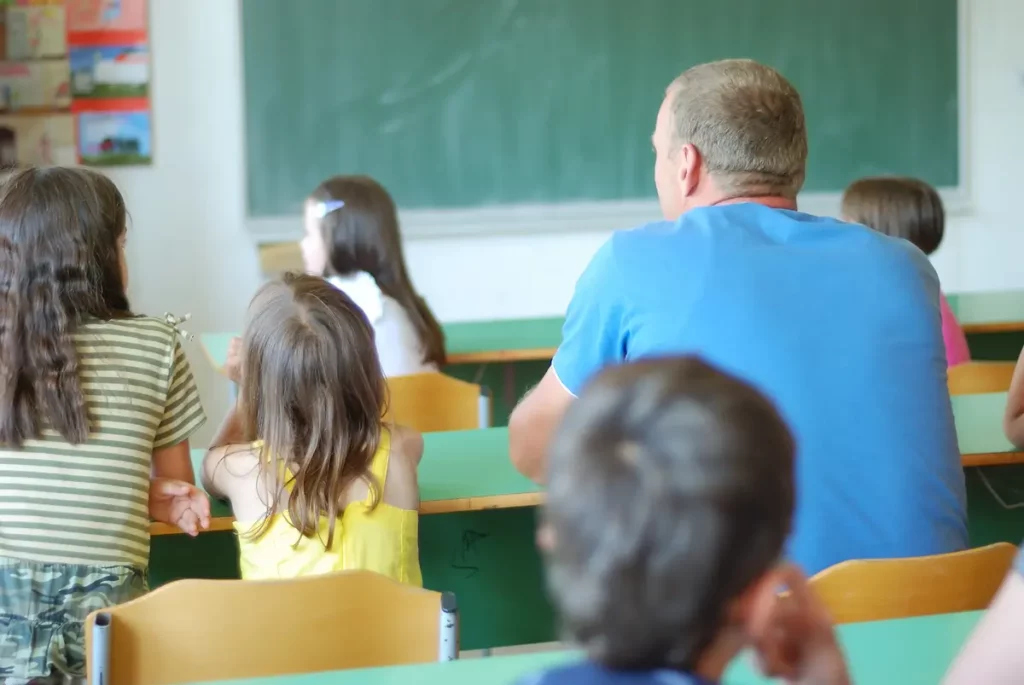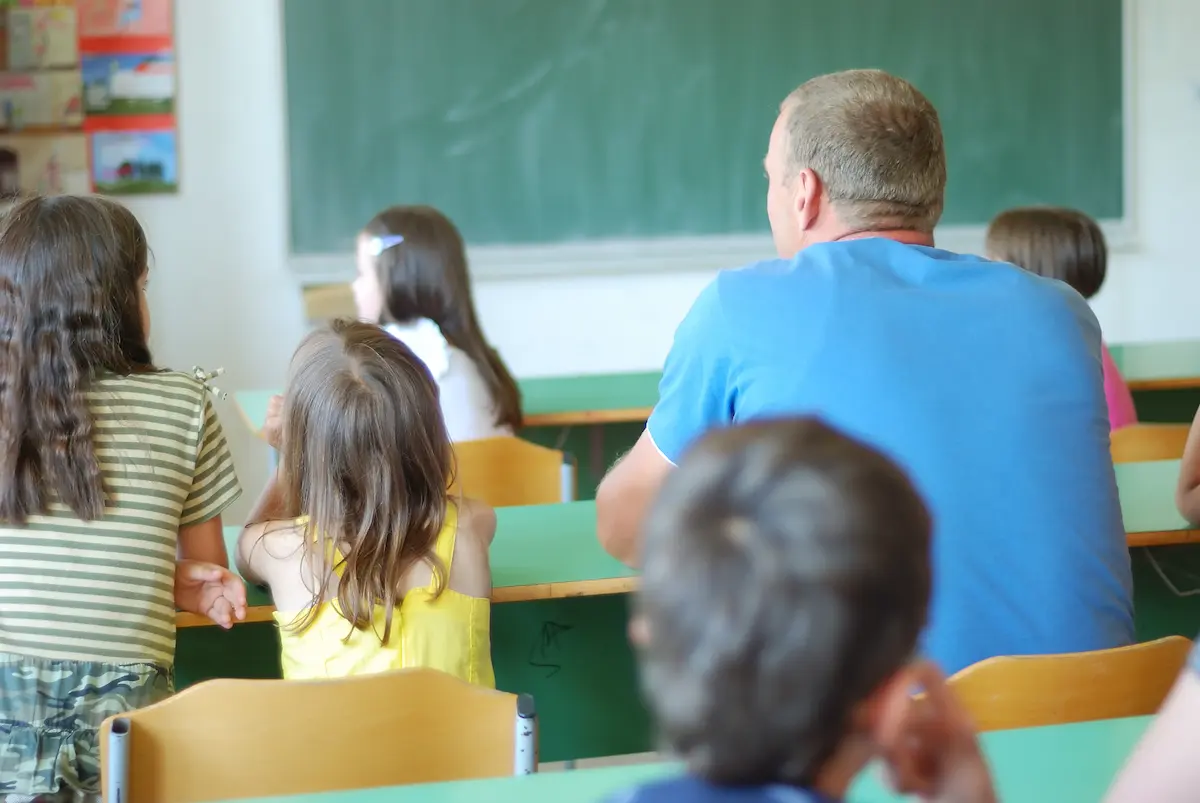Teachers need to deal with helicopter parents by providing space for them to air their anxieties. But this space must have set boundaries where the teacher knows they can give the parents time in order to listen and, when necessary, redirect the parent’s energy and anxiety.
Teachers train for years to bring learning to life for their students. Yet, in our modern society, being an educator often requires the skills of a politician to navigate the parents. But there is no training provided to deal with all the demands and antics the adults bring to the classroom. How is a teacher expected to get those helicopter parents to land their chopper and turn those blades off?
Helicopter parents can be bullies. It can be traumatic and exhausting in an already demanding career. After a year of dealing with such parents, a teacher can become very sensitive. But this could lead to an overreaction to any parent who expresses concern or tries to open a line of communication about their child’s education. Thus, it is essential to have a strategy in place to protect both parties.

Related Reading: Helicopter Parents Vs. Lawnmower Parents [WHAT’S THE DIFFERENCE?]
10 Best Ways for Teachers to Deal With Helicopter Parents
Any teacher that has taught for more than a week has come across a helicopter parent. Their child is the most special of all the exceptional students. Their kid has needs, goals, and dreams (in the parent’s mind) that often don’t reflect the child’s true desires. Yet, if these parents are not dealt with appropriately, they can become energy vampires, taking an educator away from their actual job: teaching.
1. Teachers Need to Make Space for Listening
Teachers need to create a space for listening to parents’ concerns. By creating this space, it protects the time an educator needs for teaching and for living their lives outside of the classroom. In addition, having space to listen assures such parents that they are being heard. Without that space, these parents will cause further disruption, just like a child who misbehaves for attention.
2. Teachers Must Draw Firm Boundaries
Teachers must draw boundaries around their personal lives and their teaching time. Without it, the helicopter parent will infiltrate and stomp over the space and needs of everyone else. The children deserve the teacher’s time during lessons, and helicopter parents cannot be allowed to steal this time away.
Nor should helicopter parents be allowed to steal a teacher’s personal time. Without personal space, the mental and physical health of a teacher deteriorates. To excel as a teacher, personal needs must be met. So, guard personal time and space. If the policy is “no answering emails after 8 pm,” then stick to it. Keep personal phone numbers and accounts personal.
3. Teachers Should Avoid Defensiveness
It is natural to feel defensive when someone attacks your years of education and experience. This can be especially true for new teachers, who lack the years of experience coping with such issues. It’s infuriating and exhausting to have every decision and comment nitpicked and second-guessed. Undoubtedly, being the bigger person in the situation is challenging and unfair. But things will not get better if a teacher gives in to the temptation of being defensive.
Defensiveness also blocks listening. It prevents an understanding of reaching the root of the matter. Amongst all the attacks and accusations, there might be a real issue that needs to be addressed.
Yes, the parent’s complaint might be nonsense, but what’s behind it? Did somebody die? Are the parents getting divorced? The clues behind the attack might help address the child’s needs, even if the parent is out of line.
4. Teachers Should Let Go of Assumptions
Once a teacher has dealt with a few helicopter parents, it is natural to start creating assumptions. However, assumptions also block listening and may cause a real issue to be overlooked. Unfortunately, assumptions often lead to poorly crafted and unfit solutions.
There might be a real issue that needs to be solved amongst the parent’s poorly handled complaints. Or perhaps the parent genuinely thinks they are helping and doesn’t realize how disruptive their actions are to the classroom. But to address these matters adequately, assumptions need to be released. Each situation is unique, even if it seems exactly like one that’s occurred before.
5. Teachers Should Ensure All Parties Are Aware
Teachers need to ensure all parties are aware of the situation, including the school’s principal. Acknowledge to the parent that they’ve been heard and keep records of communications. While most parents do not have sinister intentions, protecting yourself is essential for your peace of mind and for your future career.
6. Teachers Must Keep Communications Clear
Teachers need to keep communications clear and open. Do not let the parents distract matters to side issues. Provide updates and information transparently and honestly at the agreed intervals.
However, do not allow communications to cross boundary lines. For example, if the agreement was to provide an update on progress in three weeks’ time, then do not allow the parent to bully you into providing it earlier. An example of maintaining the boundary could be; “Thank you for your email. Yes, I will be providing an update on the progress next Friday, as we previously agreed.”
7. Teachers Should Pinpoint the Core Concerns
Helicopter parents often have a long list of complaints and worries. Try to pinpoint and focus the parent on the core concern so a solution can be presented that acknowledges their woes without stealing too much time from actual teaching. Thus, the parent’s core concerns are heard and dealt with, but the amount of disruption is minimized.
8. Teachers Can Provide Tactful Honesty
It is essential to be honest with parents in a tactful manner. Avoiding the truth because the parent won’t like it is counterproductive. However, being defensive and/or too blunt can also inflame a situation. Instead, be matter-of-fact in communications and keep records.
If the parent becomes rude or threatening, suggest holding the next meeting with the principal present.
9. Teachers Should Redirect the Energy
Helicopter parents are not always self-entitled jerks. They sometimes just need a place to channel all that energy. Often, the nitpicking and overmanaging of situations are due to a desire to be an involved parent.
That parent that won’t stop barking on the sidelines? Maybe point out that the concession stands are desperate for volunteers.
The parent that keeps writing notes about the poor playground equipment? Perhaps encourage them to join the fundraising committee to upgrade the playground.
The parent who is doing their child’s art projects? Tell them you admire their talent. So, while you’d prefer that the child did their assignments unaided, the school is looking for help building sets for the school play.
Direct the parent’s excess energy into benefitting the school, while allowing the parent to feel involved in their child’s life (without smothering).
10. Teachers Are Responsible for Nurturing Student’s Independence
While dealing with a helicopter parent, the most crucial person can be overlooked: the student. It is essential to encourage each student to find their own wings and learn to be independent. This message must be given to the parents as well as the child. Learning self-advocacy and doing their own work will give the child a brighter future.
It is also crucial not to take the parent’s actions out on the child during all of this. The child’s lack of self-advocacy or participation in their own homework might be due to a lack of confidence rather than laziness. The voice of the parent may have overshadowed the child to the point where the student doesn’t feel their voice or actions have value.
Continue Reading: How To Recover from Helicopter Parenting & Switch Styles
Conclusion
Helicopter parents can be exhausting and damage a teacher’s self-worth and teaching ability. Therefore, it is essential for educators to have a strategy in place where parents feel heard within set boundaries. This protects the teacher’s health and the well-being of all the students.

